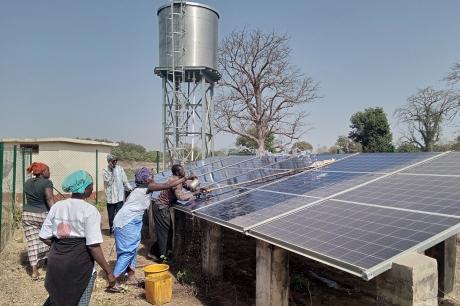No ordinary irrigation in the Gambia
Innovative solar-powered technologies are securing access to water for rural communities
Across many parts of rural Gambia, women farmers often start their days before dawn to ensure that they have enough water to irrigate their gardens and to cook, clean and bathe at home.
“Some of us would wake up as early as 3.00 a.m. to 4.00 a.m. just to get water. Hyenas attacked us on three different occasions,” said Salla Bah, a vegetable farmer in the Central River Region in the north of the Gambia. “We had to endure all these challenges to be able to water our crops and find time for chores at home.”
Like most residents in her village, Salla depends on one of three deep water wells in her village. You can never be too early, and arriving at the wrong time could cost you an entire morning and the day’s wages. The vegetable farms are vital sources of income, allowing the community members to support their households with food and income.
In collaboration with the Gambian Ministry of Agriculture, FAO started an initiative in 2013 funded by the European Union and the Global Environment Facility (GEF) to provide boreholes for water-deprived community gardens. However, these are no ordinary boreholes; they are equipped with solar-powered pumps that fill reservoirs kitted with filtration systems, providing clean water for irrigation and, critically, for household use and livestock.

